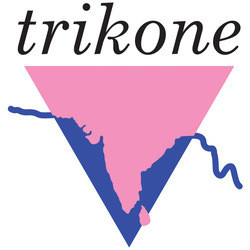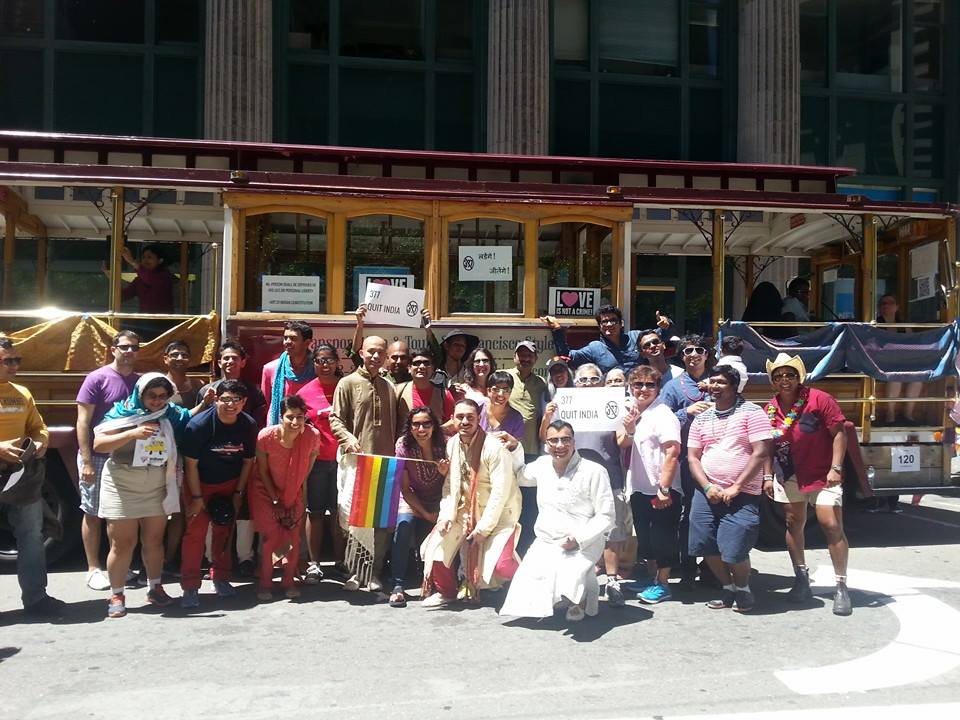June 29, 2014
PRESS RELEASE
Trikone
For immediate release
SAN FRANCISCO DEMANDS: “MODI, END 377”
Over 40 South Asian human rights advocates marched the streets of San Francisco during San Francisco Pride, demanding that India’s newly-elected Prime Minister Narendra Modi overturn Section 377 of the Indian Penal Code. Section 377 is a law instituted by British colonizers in 1860 outlawing “carnal intercourse against the order of nature” – a law best known for criminalizing consensual sexual intercourse between adults of the same sex.
“Section 377 is an outdated ban on homosexual sex imposed by the British Raj in the Commonwealth countries. While Britain stopped using 377 in the 1970s, versions of this bad law are continued through colonial legacy”, explained Monica Davis, Chairperson of Trikone, the oldest South Asian LGBTQ organization in the world. “Trikone encourages Prime Minister Modi to strike down Section 377 because this law violates an individual’s right to privacy, equality, and life with dignity. We stand with the multitude of groups in India calling for an end to this regressive colonial law”.
“We call on Prime Minister Modi to repeal Section 377”, stated Devika Ghai from the Alliance of South Asians Taking Action (ASATA), an all-volunteer group working to educate, organize, and empower Bay Area South Asian communities to end violence, oppression, racism and exploitation. “The harshest effects of 377 are often felt by those who also hold other marginalized identities, often on the basis of caste, class, and gender discrimination. Repealing Section 377 would be a step towards a country that abides by the principles of constitutional morality set by its founders”, she added.
“We hear from our partners in India that the struggles of millions of working class LGBTQ people remain largely invisible”, stated Renu Pariyadath, a member of the Association for India’s Development’s (AID). “The groups AID supports report that many LGBTQ individuals who are a part of movements for land rights, Adivasi (indigenous people’s) rights, and environmental justice are sometimes invisible as LGBTQ people, which further deprives them of rights and resources from their larger communities. AID agrees with these groups on the ground that the punitive use of Section 377 will affect particularly harshly, those communities that are doubly marginalized by their sexuality and socio-economic circumstances, such as many hijras (intersex/transsexual/transgender people), sex workers, and working class people”.
On this day of annual celebration of Pride worldwide, it is only fitting that the South Asian diaspora joins hands to demand an end to an unjust law that violates the very basic human rights of LGBTQ individuals in India. We stand in support of human rights advocates in India, including the Humsafar Trust’s petition to Prime Minister Modi.
Five Facts About Section 377 in India:
- Section 377 of the Indian Penal Code was drafted by British colonizers in 1860, who put similar laws in place in dozens of other nations, including Pakistan, Bangladesh, Sri Lanka, Myanmar, the Maldives, Australia, and others
- In India, Section 377 has been used as the basis for harassment, blackmail, extortion, and physical and sexual abuse
- The Delhi High Court overturned Section 377 in 2009, a widely celebrated decision later overturned in 2013 by the Supreme Court, which reinstated the law, while suggesting that Parliament should decide on the issue
- Prime Minister Modi’s Bharatiya Janata Party (BJP) has thus far refused to stop backing the colonial Section 377 law, even as leaders in every other major national party have called for its repeal
- Given the strength of its parliamentary majority, Prime Minister Modi and the BJP have an unprecedented opportunity to end 377 and rid India of outdated colonial laws
For ASATA,
Devika Ghai
650-644-6142
devika.ghai@gmail.com
For Trikone,
Monica Elise Davis
Chairperson, Trikone (San Francisco)
775-573-8745
chairperson@trikone.org

